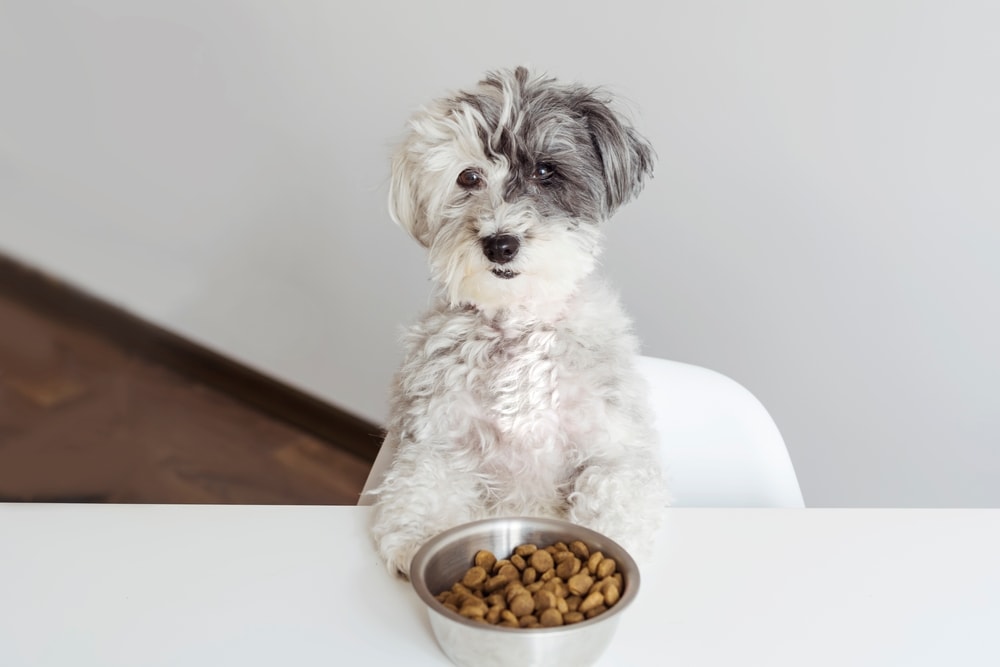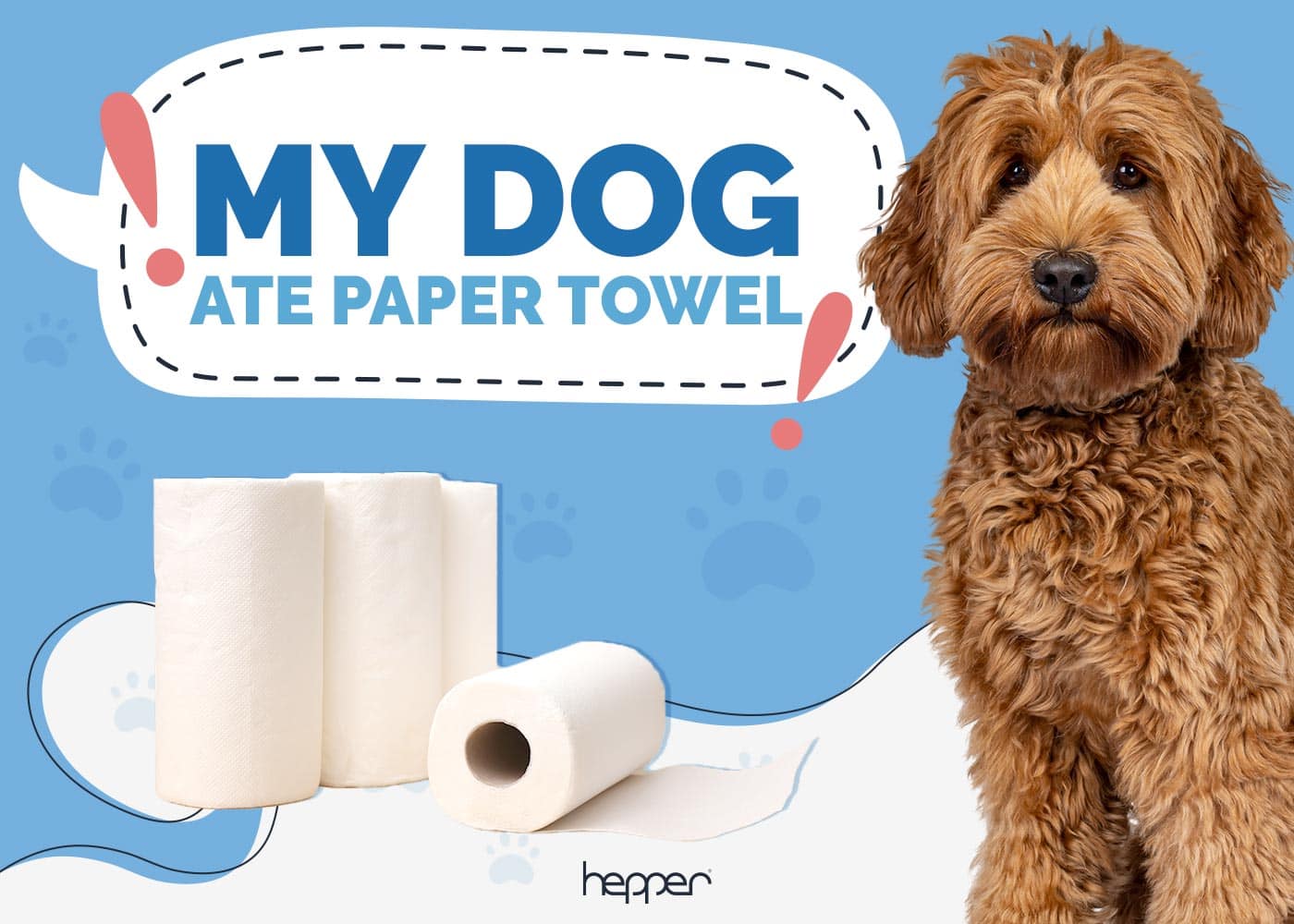How to Firm Up Your Dog’s Poop — 6 Vet-Reviewed Steps

Updated on
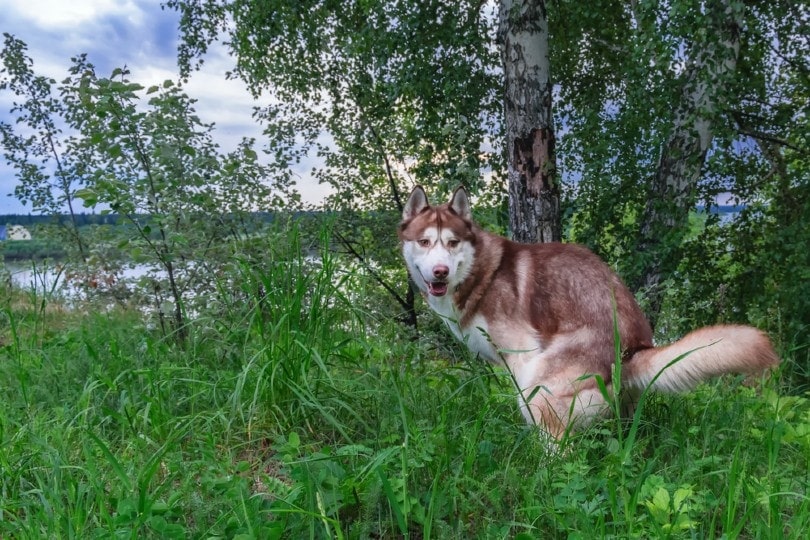
Owning a dog can be fun, but there are a lot of responsibilities that are inevitable. From health problems to monthly expenses, caring for a dog is no easy task. One of the most difficult parts of having a dog is cleaning up after them, but it’s also important to do because your dog’s poop can tell you a lot. If your dog’s poop has been loose and watery, it can indicate certain medical problems. Make sure to contact your vet whenever your dog’s feces don’t look right. In the meantime, here are a few tips on how to help firm up your dog’s poop.
The 6 Steps to Firm Up Your Dog’s Stool
1. Identify the Cause of Loose Stool
If your dog’s stool is loose or watery, it’s important to know the cause to prevent it from continuing. Try to remember if you fed your dog any new treats or “people food,” which could easily cause indigestion and diarrhea. Double check that their diet has not changed recently, that they have not been scavenging, or that they have not accidentally been fed twice. Watch your dog closely for any other signs of illness, even if they are unrelated to their digestive tract. Diarrhea is a common sign of many different illnesses.
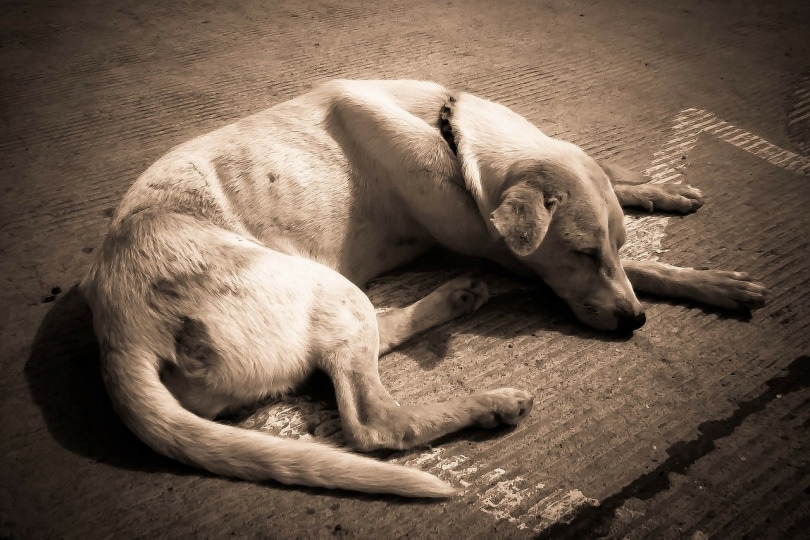
2. Provide Boiled Chicken and White Rice
If your dog doesn’t have a chicken allergy, they are still keen to eat, and their poop is watery or loose, you can try swapping your dog’s usual meals for boiled chicken and white rice in small and frequent meals. These are easy to digest and will help your dog’s digestive system, which can help ease diarrhea. This diet is only suitable for a day or two maximum, though, since it does not contain all the nutrients that your dog needs to thrive. Serve one part chicken to two parts white rice for a few days to help your dog recover from indigestion.
3. Add Fiber to Your Dog’s Diet
Fiber is a crucial part of your dog’s diet, though it won’t stop diarrhea while it’s happening. Fiber helps aid in digestion. Dogs have different fiber needs, and most kibbles only contain around 3% fiber, which may not be enough for some dogs. Before changing your dog’s food and the amount of dietary fiber that they eat, you should consult with your vet.
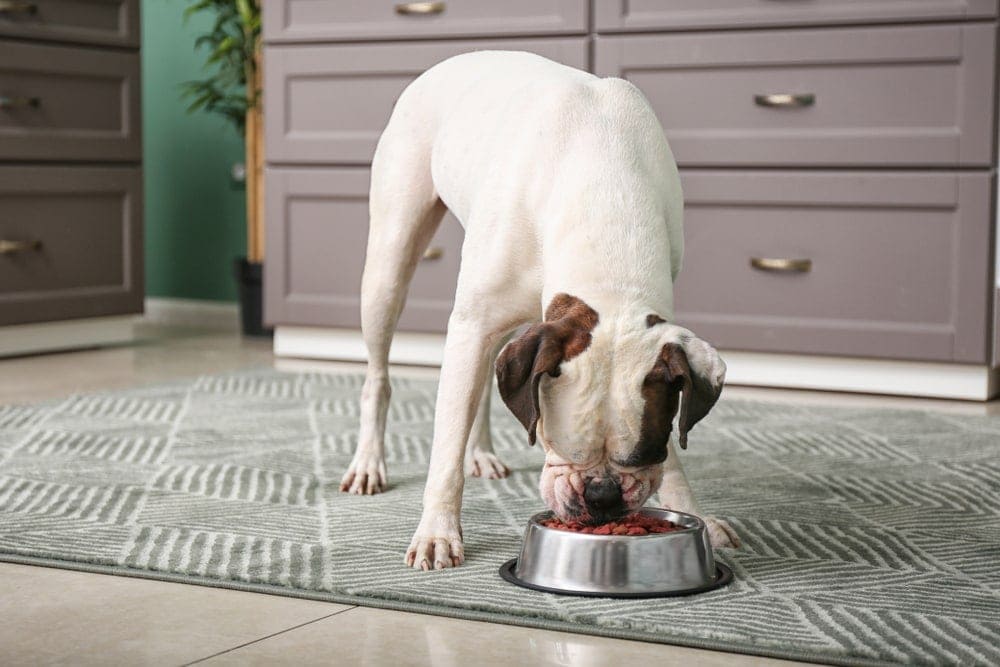
4. Feed Probiotics to Your Dog
Probiotics are beneficial gut bacteria that live in the digestive tract. Gut microbes have multiple functions, such as digestion and protection against pathogens. Prebiotics constitute the food of probiotics and promote the growth of existing beneficial bacteria.
Both pre- and probiotics are used to improve your dog’s digestive health. There are many different products and brands in the market, however. For this reason, we recommend following your veterinarian’s instructions on which product to use for your dog according to their individual situation.
5. Avoid Feeding Dairy Products to Your Dog
Many dogs are lactose intolerant and will get the runs from eating dairy. Check your dog’s treats and food for dairy if your dog is sensitive to it. Avoid feeding your dog anything with dairy to prevent a lactose reaction, which can result in soft feces.

6. Talk to Your Vet
While loose stool may happen once in a while, it should not be happening on a daily or weekly basis. Talk to your vet if your dog’s poop is regularly watery or loose, as this could be a sign of an underlying medical condition or food allergy or intolerance. When in doubt, call your vet, and bring in a stool sample to make sure your dog is healthy.
Loose dog poop is rarely an emergency situation, but it can still cause discomfort, weakness, and dehydration if left untreated. It can also be a sign of a chronic issue, so keep track of how often your dog’s poop is loose. If the problem continues or worsens, call your vet to figure out what could be causing the problem. Otherwise, we recommend trying these methods to help stop or prevent loose poop and ease your dog’s digestive pains.
Conclusion
While your dog having loose stool can be a cause for concern, there are some ways to help it firm up. However, we still recommend reaching out to your vet, just to be on the safe side of things and ensure nothing is wrong with them.
Related Read:
Featured Image Credit: Konstantin Zaykov, Shutterstock


